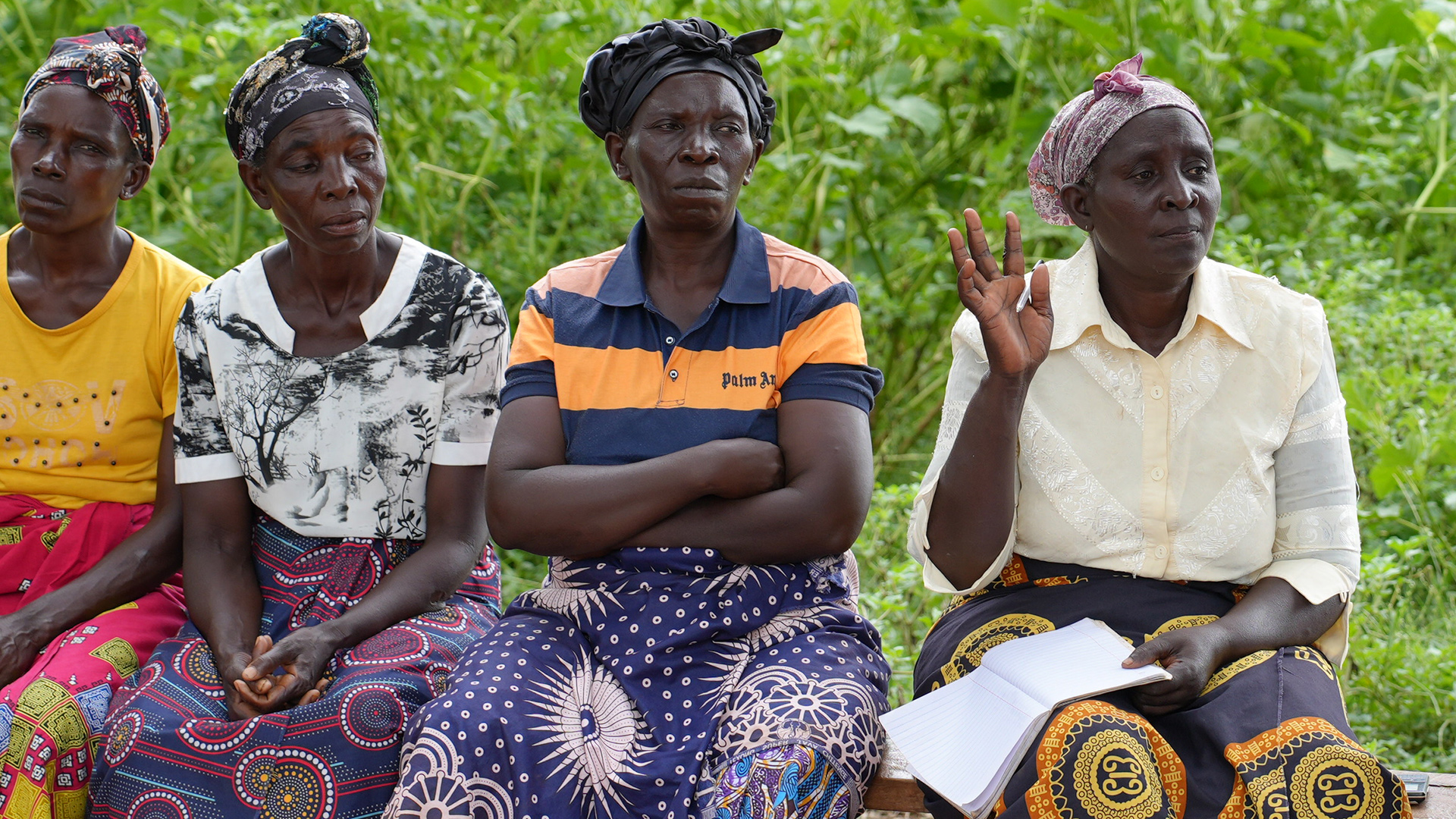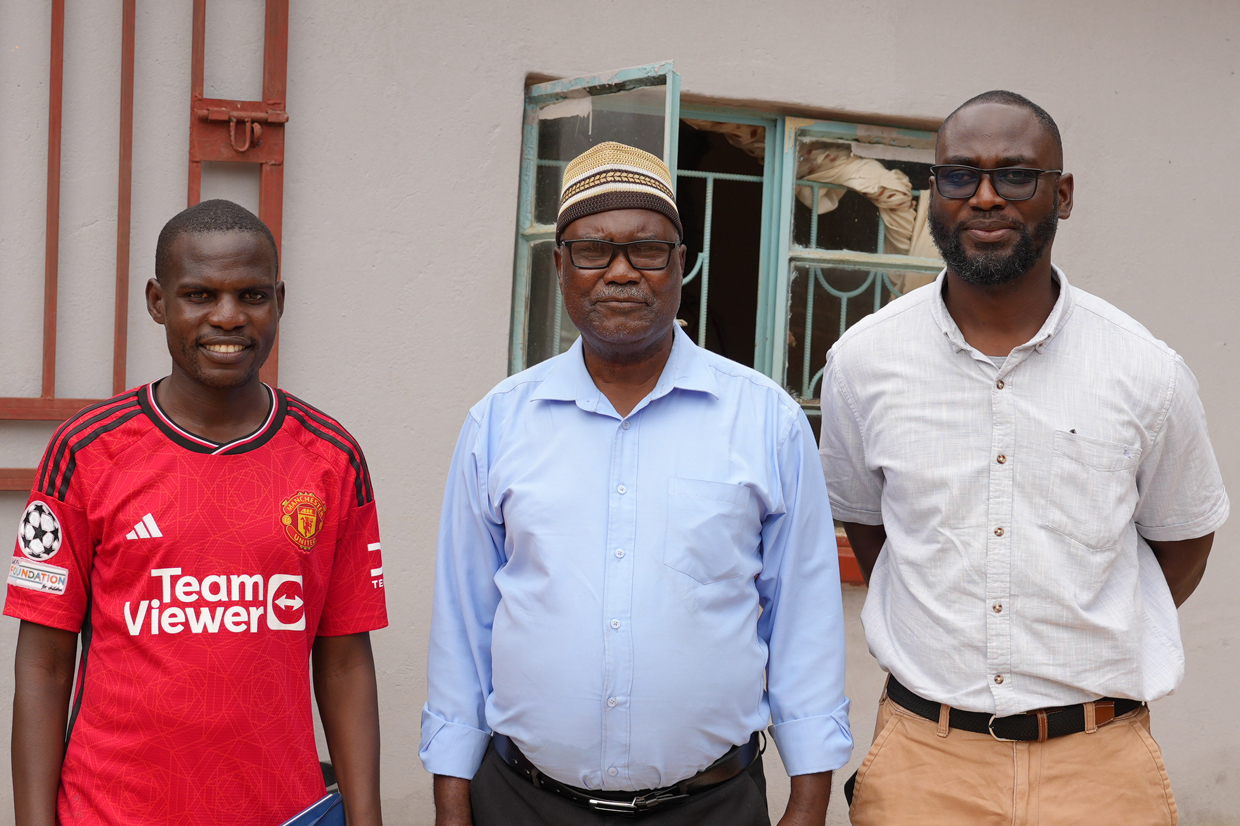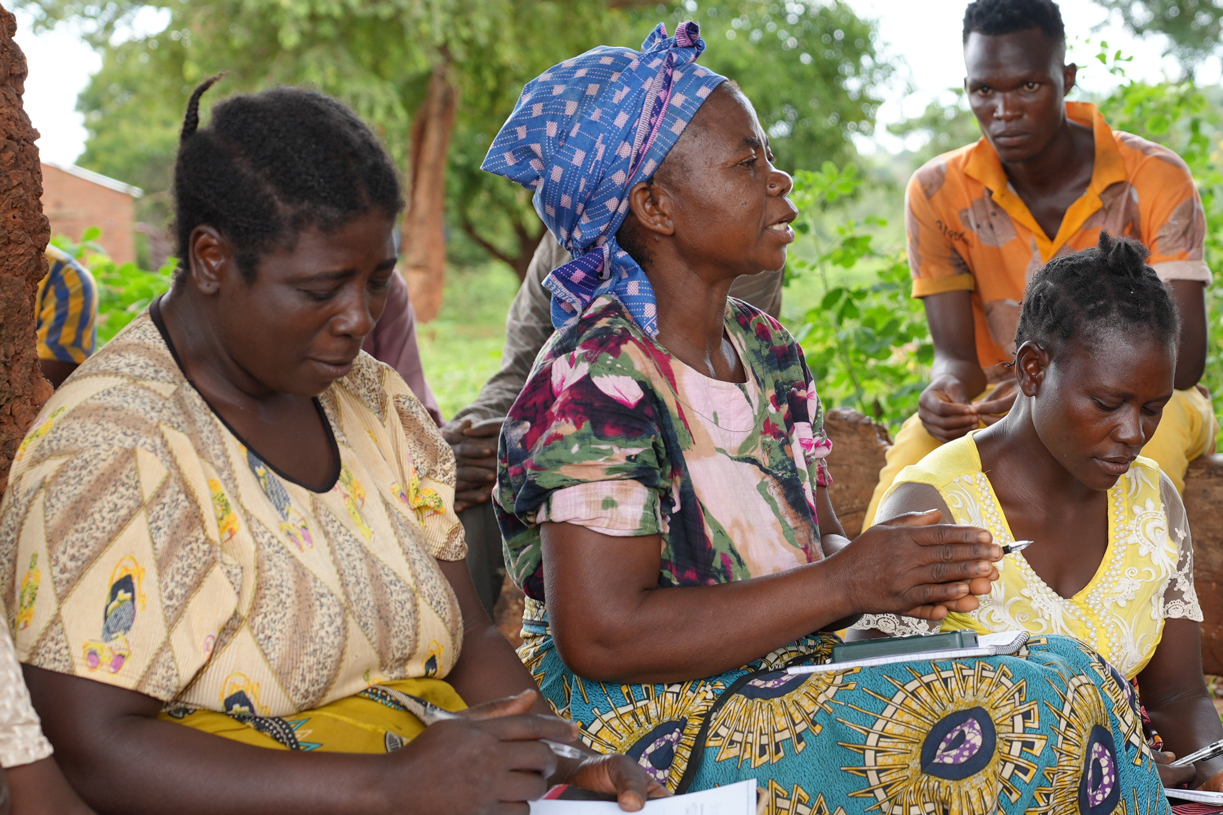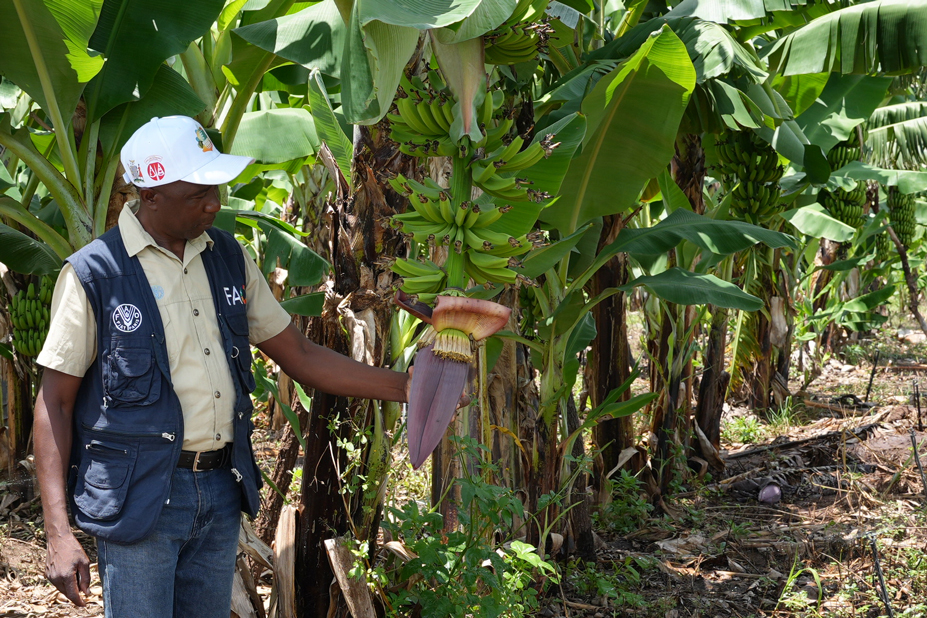
Helping climate resilience along with a little nudging
Behavioural science promotes sustainable and resilient agricultural practices in Zambia
The Food and Agriculture Organization of the United Nations (FAO) and its partners are using behavioural science to help shift mindsets towards more sustainable and resilient farming practices. ©FAO/Tiwine Muchipa
05/05/2025
On two plots of land next to each other, villagers have planted maize. The difference between them: one is cultivated using the method called ripping, or deep tillage, which uses pointed prongs to break up the soil, allowing it to retain maximum moisture. On the other plot, the regular practice of more extensive, shallower tilling is used.
Amid a searing drought in the area, in eastern Zambia’s Nyimba region, which left some local families with only enough food for one meal a day, there’s no contest between the rival plots. The parcel of land tilled using ripping is way more productive and the villagers are convinced by the evidence in front of their own eyes.
This is what behavioural science experts call a “nudge”, and it is part of an initiative by the Facility for Action for Climate Empowerment to Achieve Nationally Determined Contributions (FACE-NDC) being implemented in Zambia, focusing on changing communities’ behaviours and mindsets on climate action, women’s empowerment and sustainable practices.
FACE-NDC is funded by the German Federal Ministry of Economic Affairs and Climate Action through the International Climate Initiative (IKI). The project is being implemented by a consortium of partners, including the Food and Agriculture Organization of the United Nations (FAO), the United Nations Institute for Training and Research, the United Nations Educational, Scientific and Cultural Organization, Copperbelt University and the University of Zambia.
“We did not have what used to be considered normal rainfall this farming season, and farmers were able to see which farming practices brought out the best yield,” says Marvin Kapenda, a Behavioural Science Specialist working for FAO in Zambia.
“Definitely, we’re not telling them to choose this one; they were just observing, and they would choose the demo plot after seeing how it was going to give the desired crop yield.”
Using demo plots is an approach used in farmer field schools to influence behaviour change for climate resilient agricultural practices. It is promoted by the FACE-NDC project in collaboration with the Sustainable Intensification of Smallholder Farming Systems in Zambia (SIFAZ) project of FAO.
Agracia Lungu, Chairwoman of the Sungani Luwela Women's Farmers’ Group, says: “Many of us lacked knowledge on effective farming techniques, often opting for ploughing instead of ripping, but we are now committed to adopting better farming practices, such as ripping.”


Enlisting the support of community chiefs, like Chief Ndake (pictured left/bottom in blue), is vital in changing people’s mindsets on issues such as preserving indigenous trees and combatting the effects of climate change. ©FAO/Tiwine Muchipa
In efforts to persuade communities to change deeply engrained practices, it is vital to enlist the support of influential chiefs. One of them is Chief Ndake.
"The key to true change lies not only in the resources we provide but in the minds we transform,” he says, adding that sustainability had remained a challenge because the community’s mindset had not shifted.
As well as promoting climate-resilient farming, the initiative equally works to change people’s attitudes towards deforestation. Through community discussions and dialogues led by the traditional leaders, the initiative is helping them see the value of undertaking community forestry and preserving indigenous trees, which are vital for climate change mitigation and adaptation efforts.
In another of its nudges, the project advocates for the use of energy efficient stoves as opposed to the traditional method of using stones and firewood for cooking. The improved wood stove cooks food more rapidly, requiring only a few tree twigs or branches that have fallen from trees to cook the same quantity of food as the standard stoves, which need big logs from felled trees. This serves as a powerful encouragement for the community to conserve forests.
Another important strand is providing people with modern meteorological information to rely on instead of superstitions. For example, this information can help sway mindsets on the causes of drought, which people traditionally believed to be caused by certain species of trees that can take away the rains.
The way the initiative is going about this is both by practical “nudges” and by putting the focus on community rather than individual learning.
People “operate on other people’s ideas, so we emphasise the concept of peer to peer. They’re practising what they’re practising because their neighbour is,” says Kapenda. “We know that if we teach ten farmers and they agree with us, 100 more will agree with those 10 because they are community members, they are family members, they are friends.”
At the heart of the project is also the idea that disseminating information should be done in consultation with community chiefs and in a way that suits a community’s behaviour patterns and its practices, values and traditions. Otherwise, “at the end of the day, we end up teaching ourselves because we do not understand the behavioural aspect of the people and how they perceive that information,” Kapenda says.

Behavioural “nudges” are used, allowing people to see for themselves which farming practices bring about the best results. ©FAO/Tiwine Muchipa
Zambia is the pilot country of the FACE-NDC project. Much is at stake as the country faces the loss of an estimated 0.8 percent of its forests annually due to bushfires, charcoal manufacturing, agricultural development and lack of environmental awareness. This rapid deforestation, in turn, contributes to climate change as well as causing soil erosion, water pollution and biodiversity loss.
Building on the success of this project, FAO and its partners plan to roll out the initiative in other African countries and beyond, using behavioural science and related disciplines to increase the sense of ownership and make communities more resilient to land degradation, drought, extreme heat and the other impacts of climate change.
Related links
Learn more

